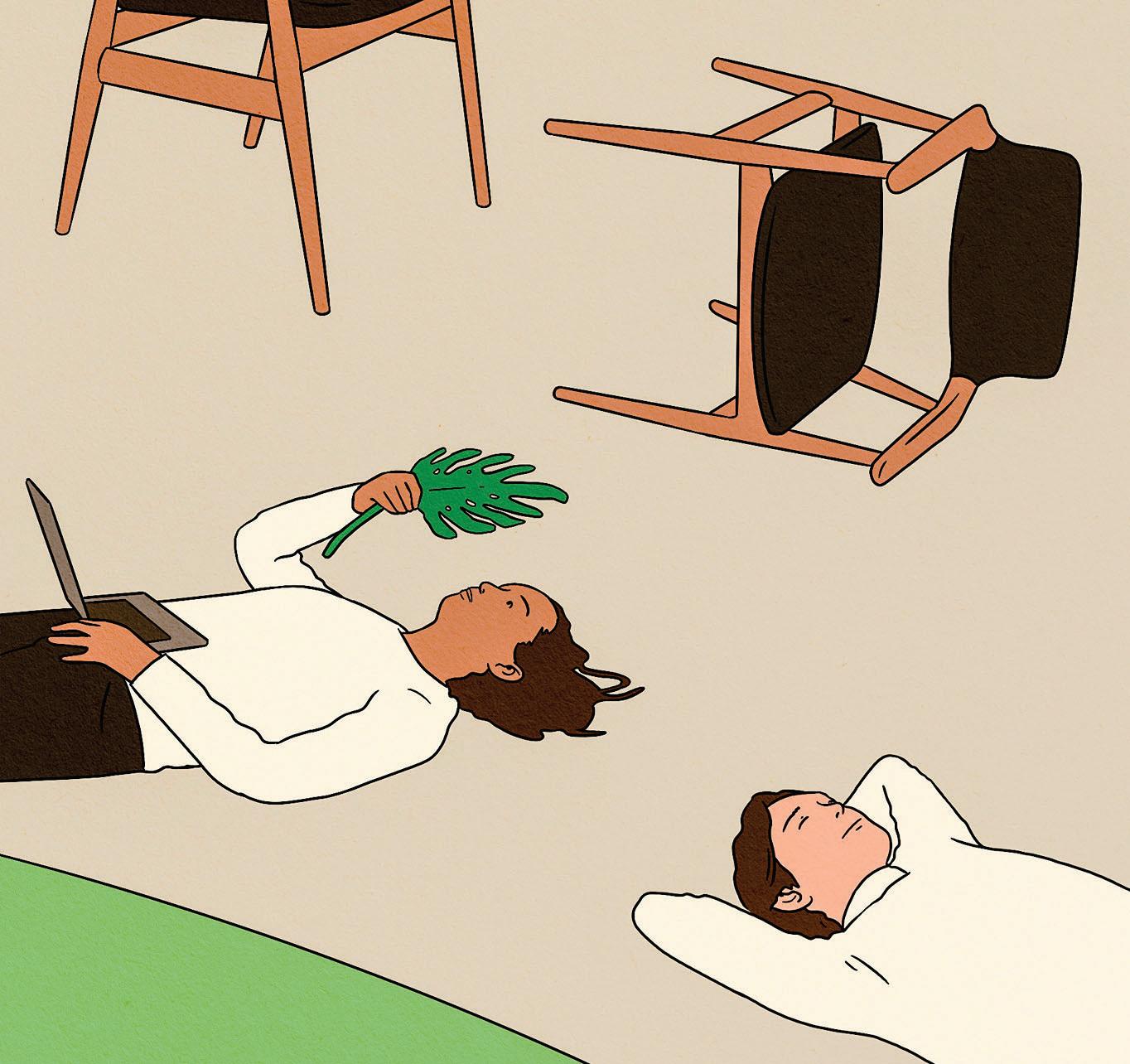INTERIORS

In Latronico's novel, aesthetic preferences are always on the brink of obsolescence.
In the fall of 1965, a twenty-nine-year-old Georges Perec published his début novel. Short and strange, “Things: A Story of the Sixties” follows Sylvie and Jérôme, a young Parisian couple who work in the burgeoning field of market research, and exist in a permanent frenzy of hyper-specific material desires. They want to furnish their apartment with fitted carpets, a black leather sofa, tartan-upholstered benches, “allegedly rustic tables.” They favor apparel that seems posh and British. Throughout the novel, the two characters are fused into a single entity—we never hear them speak—and they move through a world spangled with commercial temptations, insistently and precisely identified.
Like many before them, Sylvie and Jérôme mistake their pursuit of taste for a pursuit of knowledge, and believe themselves to be acquiring a kind of legibility—to others and to themselves. Theirs is, in effect, “the most idiotic, the most ordinary predicament in the world.” By the novel’s penultimate page, the couple’s notion of happiness—a permanent equilibrium between means and desires—has proved impossible to maintain, and they are en route to Bordeaux, where they have taken executive-level jobs at a second-tier advertising agency. The book ends with a kind of defeated sigh: they are but “tame pets, faithfully reflecting a world which taunted them.”
Still, Sylvie and Jérôme would be envied by Anna and Tom, a pair of similarly obedient animals at the center of the svelte new novel “Perfection” (New York Review Books). In the acknowledgment, its author, the Italian writer Vincenzo Latronico, calls “Perfection” a tribute to “Things,” and his protagonists are naïvely wistful for the past. “Previous generations,” Anna and Tom are convinced, “had had a much easier time working out who they were and what they stood for.”
هذه القصة مأخوذة من طبعة March 24, 2025 من The New Yorker.
ابدأ النسخة التجريبية المجانية من Magzter GOLD لمدة 7 أيام للوصول إلى آلاف القصص المتميزة المنسقة وأكثر من 9,000 مجلة وصحيفة.
بالفعل مشترك ? تسجيل الدخول
هذه القصة مأخوذة من طبعة March 24, 2025 من The New Yorker.
ابدأ النسخة التجريبية المجانية من Magzter GOLD لمدة 7 أيام للوصول إلى آلاف القصص المتميزة المنسقة وأكثر من 9,000 مجلة وصحيفة.
بالفعل مشترك? تسجيل الدخول

Carrie Brownstein on Richard Avedon's Portrait of Cat Power
It's 2003, and Cat Power exists in is bandied about, an exotic label for an American singer-songwriter on an indie label.

SCREEN TIME.
Motherhood in an age of reproductive surveillance.

TORTOISESHELL
I have never been honest with myself. It’s an attribute that has always disturbed me.

CONSUMING PASSIONS
\"Sinners.\"

FOLLOW THE LEADER
A culture of obedience reigns in Trump's Washington.

ACROSS THE GULF
Can President Claudia Sheinbaum manage Trump—and Mexico’s fragile democracy?

LONDON BRIDGE
“Richard II,” “The Years,” “Kyoto,” “Manhunt,” and “The Glass Menagerie.”

HOSPITALS IN RUINS
A doctor witnesses what remains of a ravaged health-care system.

A TIME TO KILL
The last-ditch effort to head off the Civil War.

SUBTITLING YOUR LIFE
Advances in transcription are good news for the hard of hearing.
